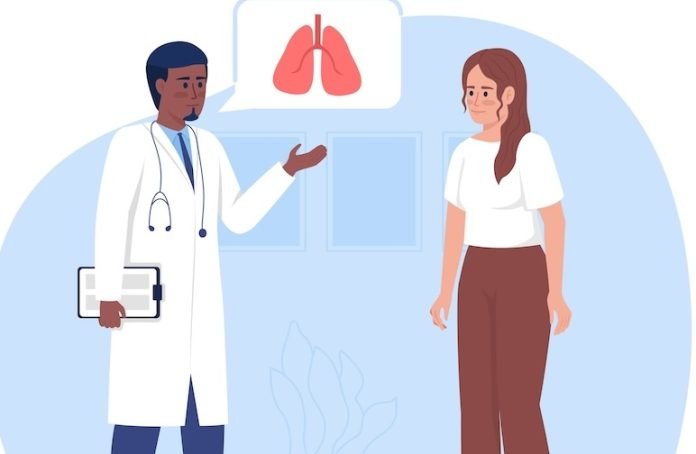
Cystic fibrosis (CF) is a genetic disorder that mainly affects the lungs and digestive system, leading to severe respiratory and nutritional issues.
It’s a condition that’s both complex and widely researched, with new insights constantly emerging. Here’s a straightforward look at what causes cystic fibrosis and the science behind it, presented in a way that’s accessible to everyone.
Cystic fibrosis is caused by mutations in a gene called the CFTR (cystic fibrosis transmembrane conductance regulator) gene. This gene is responsible for creating a protein that helps move salt and water in and out of our cells.
When the CFTR gene is mutated, this process doesn’t work properly. The result is thick, sticky mucus that builds up in various organs, particularly the lungs and pancreas.
This mucus is not only difficult to clear, but it also creates an environment where bacteria can grow easily, leading to repeated lung infections.
Everyone has two copies of the CFTR gene, and cystic fibrosis occurs when both copies have mutations. If a person has only one mutated gene, they won’t develop the disease but will be a carrier. This means they can pass the mutated gene to their children.
If two carriers have a child, there’s a 25% chance their child will have cystic fibrosis, a 50% chance the child will be a carrier, and a 25% chance the child will neither have the disease nor be a carrier.
The discovery of the CFTR gene in 1989 was a significant breakthrough in understanding cystic fibrosis.
Since then, research has identified over 2,000 different mutations of this gene that can cause the disease, though not all mutations have the same effect on the body. Some lead to milder forms of the disease, while others result in a more severe condition.
Research into CF is continuously advancing. Scientists are not only exploring the genetic basis of the disease but also developing new treatments that target the defective CFTR protein.
These treatments aim to improve the function of the protein or correct the process by which the protein is made and handled by the body.
One of the most promising areas of CF research is gene therapy, which involves inserting a normal CFTR gene into the cells of a CF patient. This could potentially correct the genetic defect that causes the disease.
Although still in experimental stages, gene therapy holds great potential and could offer a more permanent solution to those suffering from CF.
Another exciting development is the creation of drugs that target the specific mutations of the CFTR gene. These drugs work to improve the function of the defective protein, helping to thin the mucus and reduce the severity of the symptoms.
These targeted therapies have shown significant benefits, including improved lung function and a better quality of life for patients.
The management of cystic fibrosis has also improved significantly over the years, thanks to advancements in treatment and early diagnosis.
Screening newborns for CF has become routine in many countries, allowing for early intervention and management of the disease. This has dramatically improved the life expectancy and quality of life for many affected by CF.
Understanding the causes and mechanisms of cystic fibrosis is crucial, not only for developing effective treatments but also for educating and supporting patients and their families. As research continues, the hope is that one day cystic fibrosis can be fully cured.
Until then, the goal remains to manage symptoms effectively and ensure those with CF can lead full and rewarding lives.
The progress in research and treatment over the past few decades has turned what was once a fatal disease into a manageable condition, showcasing the power of medical science and its impact on real lives.
If you care about inflammation, please read studies about the big cause of inflammation in common bowel disease, and vitamin B may help fight COVID-19 and reduce inflammation.
For more health information, please see recent studies about new way to halt excessive inflammation, and results showing foods that could cause inflammation.
Copyright © 2024 Knowridge Science Report. All rights reserved.



